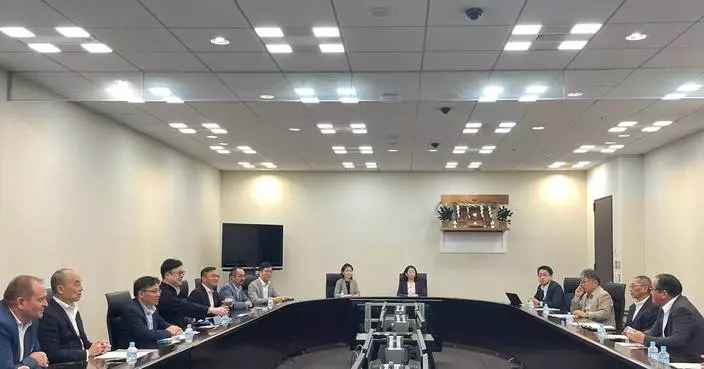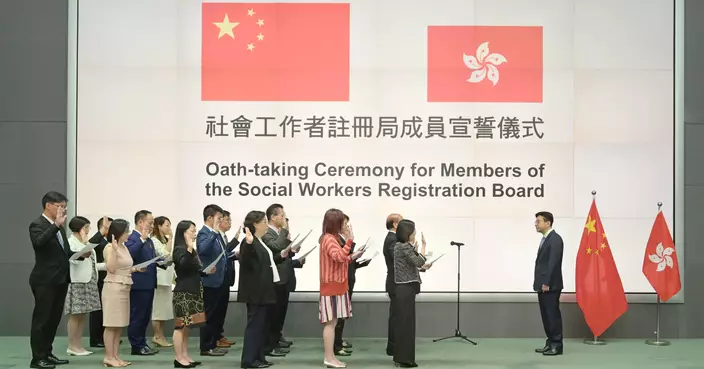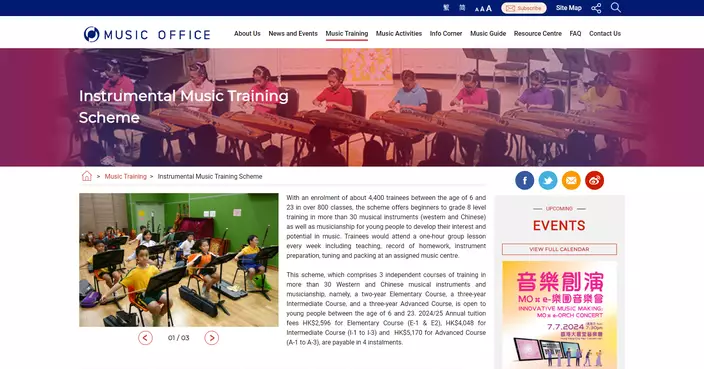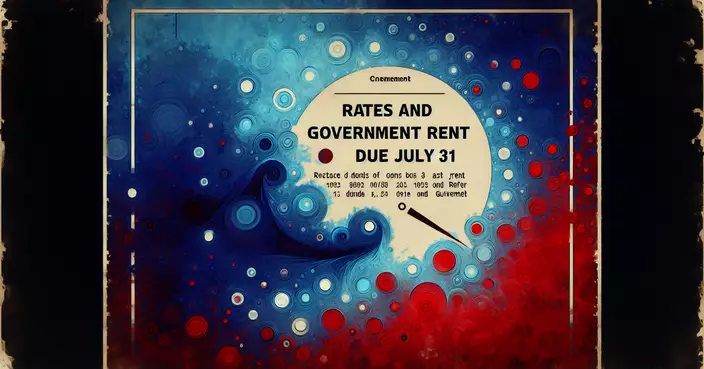Government takes action on clp power outages: investigation, compensation, and enhanced safety measures underway
Following is a question by the Hon Starry Lee and a written reply by the Secretary for Environment and Ecology, Mr Tse Chin-wan, in the Legislative Council today (July 3):
Question:
CLP Power Hong Kong Limited (CLP) experienced a cable fault in the Wong Tai Sin district on the evening of the 12th of last month, which reportedly caused extensive power outage in Lung Kwong House of Lower Wong Tai Sin Estate, Lions Rise, Mei Tak House of Mei Tung Estate and Temple Mall South, etc., and CLP experienced seven voltage dip and power interruption incidents in the first half of this year. In this connection, will the Government inform this Council:
(1) given that in the reply to a question raised by a Member of this Council on the Estimates of Expenditure 2024-2025, the Government has indicated that CLP experienced 10, 19 and 16 incidents of voltage dip and power interruption in 2021, 2022 and 2023 respectively, whether it knows the location, the number of customers affected and the duration of the power interruption of each incident;
(2) whether it knows, in the incident on the 12th of last month, if the affected area was powered by the ring power distribution system; if it was, why CLP failed to maintain the power supply by other cables after the incident occurred; if not, whether CLP will consider introducing the ring power distribution system into the area, so as to enhance the reliability of the power supply;
(3) whether it knows if CLP will offer compensation to its customers affected by the incident on the 12th of last month by modelling on its practice of giving out Appreciation Vouchers to the affected customers following the major power outage in Yuen Long, Tin Shui Wai and Tuen Mun in June 2022; if CLP will, of the details; if not, the reasons for that;
(4) given that the Environment and Ecology Bureau has, in the light of the incident on the 12th of last month, requested CLP to offer funds for the engagement of an independent consultant by the Electrical and Mechanical Services Department to re-examine past power interruption incidents, conduct a comprehensive review of the power supply system, and make holistic recommendations to minimize the occurrence of power interruptions, of the details of the progress of the various tasks;
(5) as there are views that the demand for power consumption surges as Hong Kong is heading into the scorching summer, whether it knows if CLP will conduct risk assessments and expedite the inspection of high-risk areas (including the cables, substations and other power supply installations in old districts and areas powered by the radial power distribution system), so as to ensure that there are no potential safety hazards during the peak power consumption periods, and modernize obsolete facilities when necessary; if CLP will, of the details; if not, the reasons for that; and
(6) whether it will review the new penalty scheme introduced under the 2023 interim review on the Scheme of Control Agreements, so as to include incidents of a scale similar to that on the 12th of last month in the scope of the penalty system; if so, of the details; if not, the reasons for that?
Reply:
President,
A stable and reliable power supply is very important to the daily lives of the public and every level of economic activities in Hong Kong. The Government is very concerned about a number of power outage and voltage dip incidents of CLP Power Hong Kong Limited (CLP) occurring one after another in the recent half year, leading to public concerns about whether CLP's service quality is on the decline. The Environment and Ecology Bureau (EEB) earlier indicated that it was necessary for CLP to examine its company culture and management system for the entire power supply system to identify the root causes of the problem, make fundamental improvements to reduce the chances of similar incidents in the future, and maintain the stable and reliable power supply that Hong Kong has always been proud of.
Regarding the various parts of the question raised by Hon Starry Lee Wai-king, our reply is as follows:
(1) According to the records of incidents reported under the prevailing reporting mechanism, voltage dip and power outage incidents of CLP's power supply system from 2021 to 2023 are detailed in Annex.
(2) and (4) As regards the power outage incident occurred in Wong Tai Sin area on June12, 2024, CLP preliminarily suggested that there were two 11kV ring circuit underground cables supplying power in the area and the incident was related to the fault of the two underground cables one after the other that day. Upon receipt of CLP's notification, the Electrical and Mechanical Services Department (EMSD) immediately deployed staff to the site to investigateand follow up on the incident, as well as requested CLP to identify the cause of the incident as soon as possible and to submit a detailed report within four weeks (i.e. on or before July 10, 2024) to explain the cause of the incident and the necessary remedial measures to be taken, in accordance with the Electricity Ordinance (Cap.406). Upon receipt of the incident report, the EMSD will review the investigation findings and improvement measures as well as closely monitor CLP's implementation of various measures to prevent recurrence of similar incidents. If needed, the EMSD will request CLP to make clarifications or provide further information and additional improvement measures.
On the day following the incident, the Secretary for Environment and Ecology (SEE) met with the Managing Director of CLP and requested CLP to allocate resources for an independent consultant. The EMSD will be responsible for engaging the independent consultant, who will report to Director of Electrical and Mechanical Services (DEMS) after:
(i) Conducting a re-examination of all voltage dips and power supply interruption incidents that occurred in the past three years, listing the causes, improvement measures, implementation status of the measures, and their effectiveness;
(ii) Conducting a comprehensive review of the safety design of the power supply system, its capability to withstand the impact of external factors, the arrangements for maintenance and preventive maintenance, the procurement and inspection system for materials, the supervision and quality assurance standards, as well as personnel qualification, training and retraining requirements; and
(iii)Providing comprehensive recommendations on how to enhance the stability and reliability of the power supply, and reduce the chances of similar incidents in the future.
In response to the above request, the EMSD and CLP have formed the "Task Force on Review of CLP's Power Supply System" (Task Force) and has commenced relevant work. The EMSD is currently following up on the recruitment of an independent consultant, with a view to completing the review and submitting a report within 12 months.The EMSD is also preparing for the establishment of the "Steering Group on Review of CLP's Power Supply System" (Steering Group). DEMS will invite local experts and scholars to join the Steering Group to supervise the work of the independent consultant and advise on the report.The first meeting of the Steering Group is tentatively scheduled in August 2024.
Subsequently, a voltage dip incident occurred in CLP's 400kV overhead line power supply system connecting Yuen Long and Shenzhen in the early morning on June 23, 2024. While there were no extreme weather conditions that night, CLP suspected that the incident was related to the inclement weather as Thunderstorm Warning was issued by the Hong Kong Observatory. The EEB is extremely concerned about the electrical incidents occurred under such circumstances and was of the view that CLP should not wait until the completion of the review for its result, but should enhance the capability of the power supply system to withstand inclement weather as soon as possible. The EMSD also shortly followed up with CLP on how to enhance the lightning protection capability of power supply system, with a view to reducing the risk brought about by the high frequency of Thunderstorm Warnings during these few months. In addition, the EMSD has established a task force to solemnly follow up on the improvement measures proposed by CLP, including various short, medium and long term measures, with an aim to mitigating the impact of extreme weather on the power supply system, such as increasing manpower and adopting innovative technology to conduct inspections and maintenance of key facilities, and installing more lightning protection systems on some outdoor power facilities, to minimise the impacts of lightning, etc. Apart from ensuring CLP's implementation of various measures, the task force will also examine whether CLP's timetable for implementation of measures can be accelerated, and if there are any additional measures which can assist to enhance the capability of power supply system to withstand the impact of inclement weather.
(3) During the meeting with the Managing Director of CLP on June 13, SEE suggested that CLP offers "Appreciation Vouchers" to the affected customers, making reference to the power outage incident after the Cable Bridge Fire Incident in Yuen Long in June 2022. We believe that, CLP, as a socially responsible company, would carefully consider the suggestion.
(5) CLP stated that with a view to ensuring a reliable power supply during peak demand periods, particularly during scorching summer days with sharply increased demand, CLP had been continuously monitoring the demand of the power supply system and promptly identifying areas with higher growth of power demand to formulate necessary mitigation measures (including the replacement of aging equipment when necessary). When any potential overload conditions are forecasted, CLP will prioritise resources to conduct reinforcement work. As regards the enhancement of inspections for high-risk areas, CLP has already strengthened inspections of critical power supply facilities to reduce the risk of impacts on the power supply system before entering the scorching summer.
(6) Upon the completion of the Interim Review of the Scheme of Control Agreements (SCAs) in 2023, a new penalty scheme for large-scale electricity supply interruptions, such as CLP's Cable Bridge Fire Incident happened in June 2022, was established under the SCAs. The permitted return will be adjusted, according to the level of "Customer Interruption Duration" of individual serious incidents that year.
In view of the recent frequent voltage dip incidents of CLP and taking into account views from various sectors of the community considering that CLP should bear responsibility for voltage dip incidents, EEB previously proposed to CLP that a penalty scheme should be established for significant voltage dip incidents and included in the existing SCA with CLP. According to the SCAs, all proposed modifications will not take effect unless an agreement is made by the Government and CLP on the modifications.CLP is still considering the proposal suggested by the Government.

Source: AI-generated images
Secretary for justice, mr paul lam, sc, emphasizes asia's role in upholding five principles of peaceful coexistence at international law colloquium
Following is the speech by the Secretary for Justice, Mr Paul Lam, SC, at the 2024 Colloquium on International Law today (July 5):
Distinguished guests, ladies and gentlemen,
Good afternoon. It is my privilege to join you today at this esteemed annual colloquium on international law, which has always been a wonderful platform for fruitful exchanges amongst all those interested in the development of international law.
First and foremost, I would like to extend my heartfelt gratitude to the Asian Academy of International Law (AAIL), the AAIL Foundation and the Chinese Society of International Law for organising this meaningful event and for inviting me to deliver this keynote speech.
(I) Background on the Five Principles
The theme of this Colloquium today is "Asia's Contribution to Five Principles of Peaceful Coexistence: Past and Future". Having listened to the insightful speeches delivered by our distinguished speakers on the topic this morning, I am very sure these Principles are no longer strangers to any of you.
To recap, the Five Principles of Peaceful Coexistence are: first, mutual respect for each other's territorial integrity and sovereignty; second, mutual non-aggression; third, mutual non-interference in each other's internal affairs; fourth, equality and mutual benefit; and lastly, peaceful coexistence.
While the Principles were initiated 70 years ago, they still play an influential and indispensable role under the international and national legal order today. For instance, the Five Principles have been enshrined in the preamble to the Chinese Constitution and reiterated in Article 4 of the Law on Foreign Relations of China enacted not too long ago.
(II) Asia's Contribution - the Past
On the international plane, the Five Principles have been accepted and further extended at the Bandung Conference in April 1955 by Asian and African States. They have also been incorporated into various bilateral and multilateral agreements and have been endorsed by numerous countries and international organisations.
For example, the tenets of the Five Principles were incorporated in a resolution on peaceful coexistence presented by India, Yugoslavia and Sweden, and unanimously adopted on December 11, 1957, by the United Nations General Assembly. In 1961, the Conference of Non-Aligned Nations in Belgrade also accepted the Five Principles as the principled core of the Non-Aligned Movement.
It is noteworthy that the Five Principles align closely with the principles enshrined in the Charter of the United Nations, which emphasises mutual respect for each other's territorial integrity and sovereignty, mutual non-aggression, non-interference in each other's internal affairs, equality and peaceful coexistence.
As President Xi mentioned during his important speech at the Conference Marking the 70th Anniversary of the Five Principles of Peaceful Coexistence in Beijing last Friday, and I quote, "the Five Principles of Peaceful Coexistence have set a historic benchmark for international relations and international rule of law. They fully conform with the purposes and principles of the UN Charter, with the evolving trend of international relations of our times, and with the fundamental interests of all nations."
(III) Asia's Contribution - the Future
Although 70 years have passed since the formulation of the Five Principles, they have withstood the test of time and remained highly relevant in the modern world.
Asia, with its rich and diverse cultural heritage, is well positioned to continue to contribute to the wider acceptance of the Five Principles by further practicing them when forging international relations across borders.
There are various ways through which Asian jurisdictions may continue to capitalise on these Principles for collective advancement.
(A) Belt and Road Initiative
First of all, Asian countries' continual participation in regional initiatives such as the Belt and Road Initiative (BRI) exemplifies the spirit of the Five Principles.
As discussed by the distinguished speakers in the morning session of this Colloquium, the BRI seeks to develop integrated trade corridors across Asia, the Middle East, Africa and Europe, covering more than 150 countries.
Just as President Xi mentioned in his speech last week, and I quote, "all countries, regardless of their size, strength and wealth, are equal members of the international community", with common interests, rights and responsibilities in international affairs and should work together for a shared future. In the same spirit, Asian states with a shared future and intertwined interests, may, through taking part in projects under the Belt and Road Initiative, continue to connect with each other and enjoy mutual benefits.
In this regard, Hong Kong, China, as an international financial centre, not only acts as a nexus for cross-border project financing, but also plays the role of an international legal and dispute resolution service centre as well as a capacity-building hub for foreign-related legal affairs.
International legal and dispute resolution centre
Specifically, under the principle of "one country, two systems", the Hong Kong Special Administrative Region (Hong Kong SAR) has the benefits of an independent and reliable legal system, strong rule of law and a large pool of legal talent specialising in the provision of legal and dispute-resolution services. Under our robust legal system, our talent provide diverse and comprehensive services to all sorts of investors engaged in trade and investment under the Belt and Road Initiative, such as arbitration and mediation services.
For example, the Asian African Legal Consultative Organization (AALCO) Hong Kong Regional Arbitration Centre opened its doors in 2022 to investors, including those involved in BRI-related disputes, to offer them cost-effective and time-efficient dispute resolution mechanisms, be it physical, online or hybrid mode.
Moreover, lawtech services are readily available in our city. Examples include the online dispute resolution (ODR) platform offered by eBRAM from Hong Kong, China, which provides secure platforms for the resolution of commercial and investment disputes involving Belt and Road countries through online negotiation, mediation and arbitration, for parties around the world.
Capacity-building centre
Further, the Hong Kong SAR strives to establish itself as a leading capacity-building centre for foreign-related legal affairs.
Over the years, Hong Kong has hosted or organised various capacity-building activities, including training workshops for both local and foreign legal experts, such as the 4th Investment Law and Investor-State Mediation Training co-organised by the Department of Justice, the Centre for Effective Dispute Resolution and the AAIL, which was held most recently from May 31 to June 1, 2024. Throughout the four editions of this event, over 200 participants from 38 jurisdictions have learnt from top-notch trainers and gained invaluable insights from the discussions and interactive exercises with their fellow participants.
Hong Kong also promotes capacity building by supporting the China-AALCO Exchange and Research Program on International Law, which provides annual training courses for delegates from AALCO members. In fact, this Colloquium constitutes the Hong Kong part of the seventh training session of the Program, which is organised by AAIL with the support of the Department of Justice.
It is also worth mentioning that the first edition of The Hague Academy of International Law's Advanced Course in Hong Kong was held in December last year, benefiting over 40 participants from about 20 jurisdictions around the world. We are planning to support the second edition this year.
Looking forward, the Hong Kong SAR will step up its efforts in enhancing collaboration with different international organisations in the field of capacity building, through the establishment of the Hong Kong International Legal Talents Training Academy as announced under the Chief Executive's 2023 Policy Address. The Academy will regularly organise practical training courses, seminars, international exchange programmes, etc to promote exchanges across borders, including amongst jurisdictions in the Belt and Road region. It is envisaged that the Academy will help promote mutual understanding on the international, regional and national legal systems, contributing to the practical application of the Five Principles by fostering mutual respect and understanding.
(B) Partnerships in Trade Relations
Secondly, building partnerships in trade relations is another way to foster mutual development and contribute to the Vision of Building a Community with a Shared Future for Mankind in the spirit of peaceful coexistence, attaining the ideals of an equal and orderly multipolar world and a universally beneficial and inclusive economic globalisation, as envisioned by President Xi in his speech last Friday.
In particular, through various economic and trade partnerships, Asian countries will continue to grow together and integrate into the regional industrial value chain for collective benefits.
Again, under the principle of "one country, two systems", Hong Kong has been using its name of "Hong Kong, China" to participate in bilateral and regional trade and investment partnerships under the framework of the World Trade Organization, WTO. It has concluded over 20 investment promotion and protection agreements, including such Asian countries as Japan, Republic of Korea and Thailand. It also signed a free trade agreement and an investment agreement with the 10 member states of ASEAN (Association of Southeast Asian Nations) in late 2017, and is actively seeking early accession to the Regional Comprehensive Economic Partnership, the RCEP.
Further, international organisations such as ASEAN and APEC (Asia-Pacific Economic Cooperation) foster regional dialogues and strengthen co-operation amongst Asian countries. Again, Hong Kong, China, has been actively participating in these forums and contributing to the holistic regional growth.
These trade partnerships and collaborative efforts continue to create synergies and mutual benefits for all economies concerned, contributing to the application of the Five Principles in the economic realm.
(C) Mediation
Finally, peaceful resolution of international disputes is also an important element under the Five Principles. President Xi also highlighted in his address last Friday that the Five Principles, and I quote, "offer a new path toward peaceful settlement of historic issues and international disputes, triumphing over obsolete, narrow-minded, antagonistic and confrontational mindsets such as bloc politics and sphere of influence."
In this regard, mediation can play a pivotal role, which has a long history in Asia, and there is growing global recognition for mediation as an effective means to resolve disputes amicably. Indeed, Article 33 of the United Nations Charter explicitly states that mediation and conciliation are important means of peaceful settlement of international disputes.
Asian countries, with their strong cultural preference for peaceful resolution of disputes, continue to be one of the driving forces for the growing adoption of mediation in times of conflict, including the use of mediation for cross-border disputes.
Hong Kong has also been actively promoting the use of mediation as an alternative dispute resolution mechanism locally, regionally and internationally, in the spirit of peaceful and efficient settlement of disputes.
Within the city, the Department of Justice has been running a campaign known as the "Mediate First" Pledge for many years to promote the use of mediation to resolve disputes in Hong Kong. The Chief Executive has also announced in the Policy Address 2023 the initiative to deepen the mediation culture by enhancing the mediation system.
Regionally, Hong Kong, China, has opted into the APEC Collaborative Framework for ODR of Cross-Border Business-to-Business Disputes since 2020. Under the Framework, ODR providers such as Hong Kong's eBRAM would first offer online negotiation and mediation services in the first and second stages of the procedure, and only when disputes remain unresolved after these two phases would they be arbitrated.
Internationally, my colleagues have been participating actively as part of the Chinese delegation in the UNCITRAL Working Group III on ISDS Reform. In particular, Hong Kong has hosted the Working Group III pre-Intersessional meeting in 2020 and Intersessional meeting in 2021, contributing to the successful adoption of the UNCITRAL Guidelines on Mediation for International Investment Disputes last year.
Recently, with the staunch support from the Central People's Government to strengthen Hong Kong as an international legal and dispute resolution services centre in the Asia Pacific region under the National 14th Five-Year Plan and the Greater Bay Area Development Plan, the International Organization for Mediation (IOMed) Preparatory Office was established in the Hong Kong SAR in 2023 and the Organization will be headquartered in Hong Kong upon its establishment.
The IOMed will be the first international inter-governmental legal organisation in the world specialising in settlement of international disputes by mediation that provides friendly, flexible, economical and efficient mediation services for international disputes, and will be a useful supplement to the existing dispute resolution institutions and means of dispute resolution, providing a new platform for the peaceful settlement of international disputes.
The Hong Kong SAR will continue to contribute to the development of peaceful settlement mechanisms that embody the spirit of the Five Principles.
(IV) Looking Forward
As we look into the future, it is clear that the Five Principles of Peaceful Coexistence will continue to offer valuable guidance to Asia and the world for building meaningful and harmonious international relations. It is indeed our collective responsibility to continue to promote the Five Principles to ensure a peaceful, prosperous and sustainable world for our future generations.
History shows us that Asia has set a great example that it is possible to collaborate for mutual growth and prosperity. As President Xi has reiterated in his speech, "China's resolve to promote common development across the world will not change." In this connection, through contributing to collaboration under initiatives such as the BRI, and acting as an international legal and dispute resolution centre as well as a capacity-building hub in the region, the Hong Kong SAR's efforts will continue to contribute to the upholding of the Five Principles, which I believe will live on for the common good of all in the years to come.
On this note, I wish you all a very fruitful time at the Colloquium exploring how the spirit of the Five Principles continues to shape developments in Asia and beyond in a positive manner.
Have an enjoyable luncheon and a pleasant afternoon. Thank you.
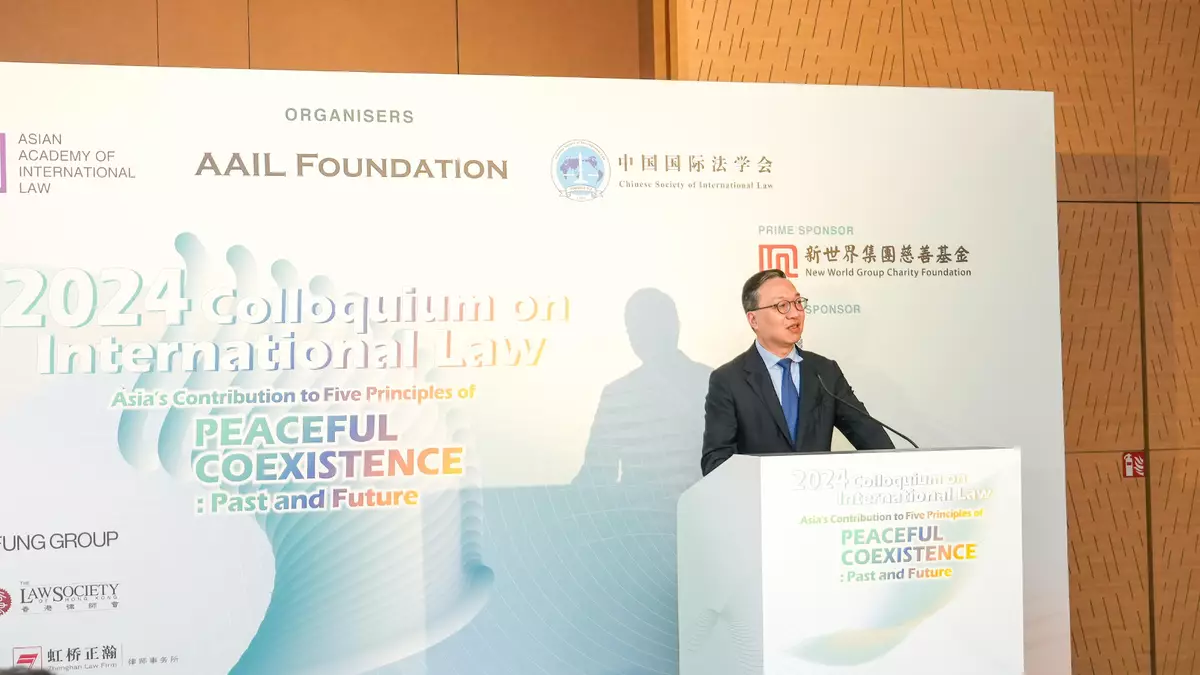
Speech by SJ at 2024 Colloquium on International Law Source: HKSAR Government Press Releases






